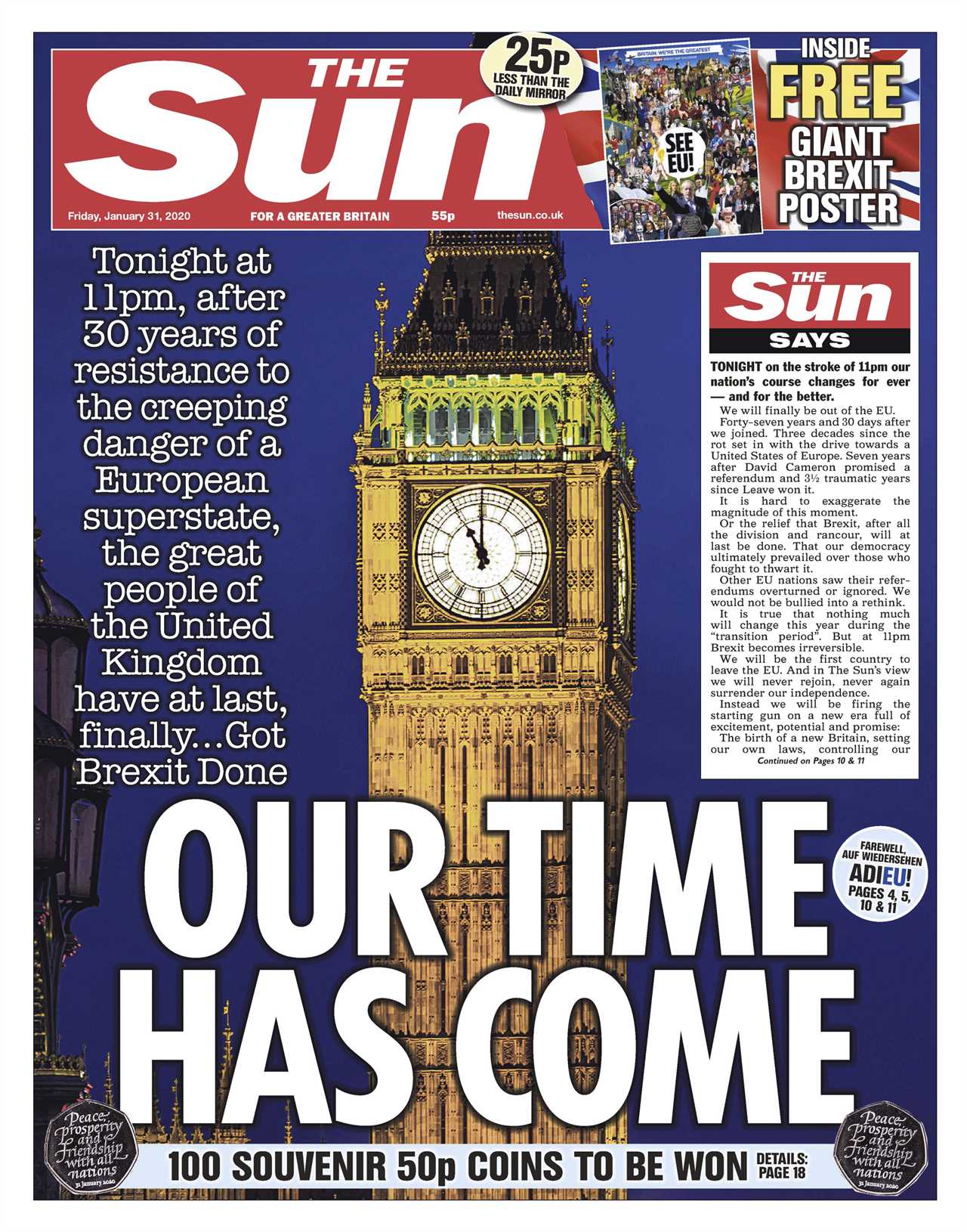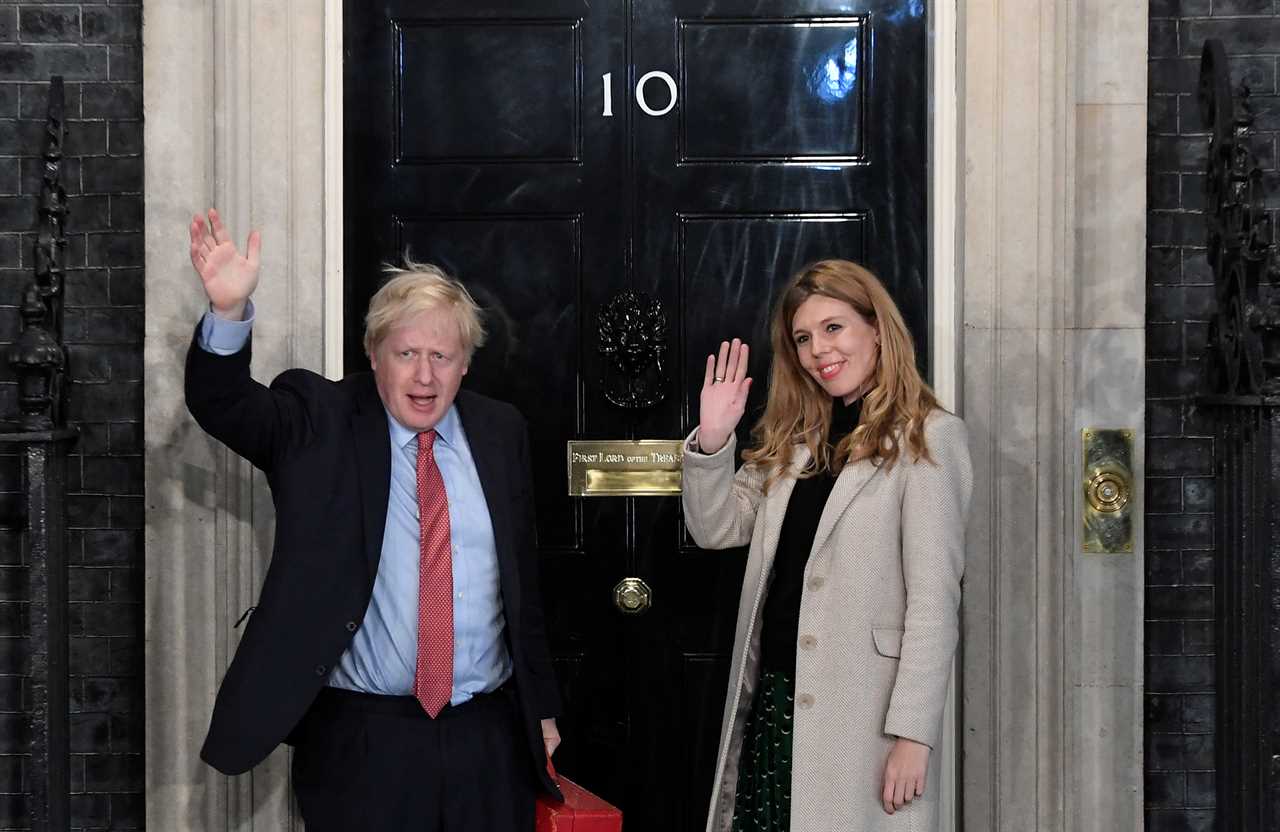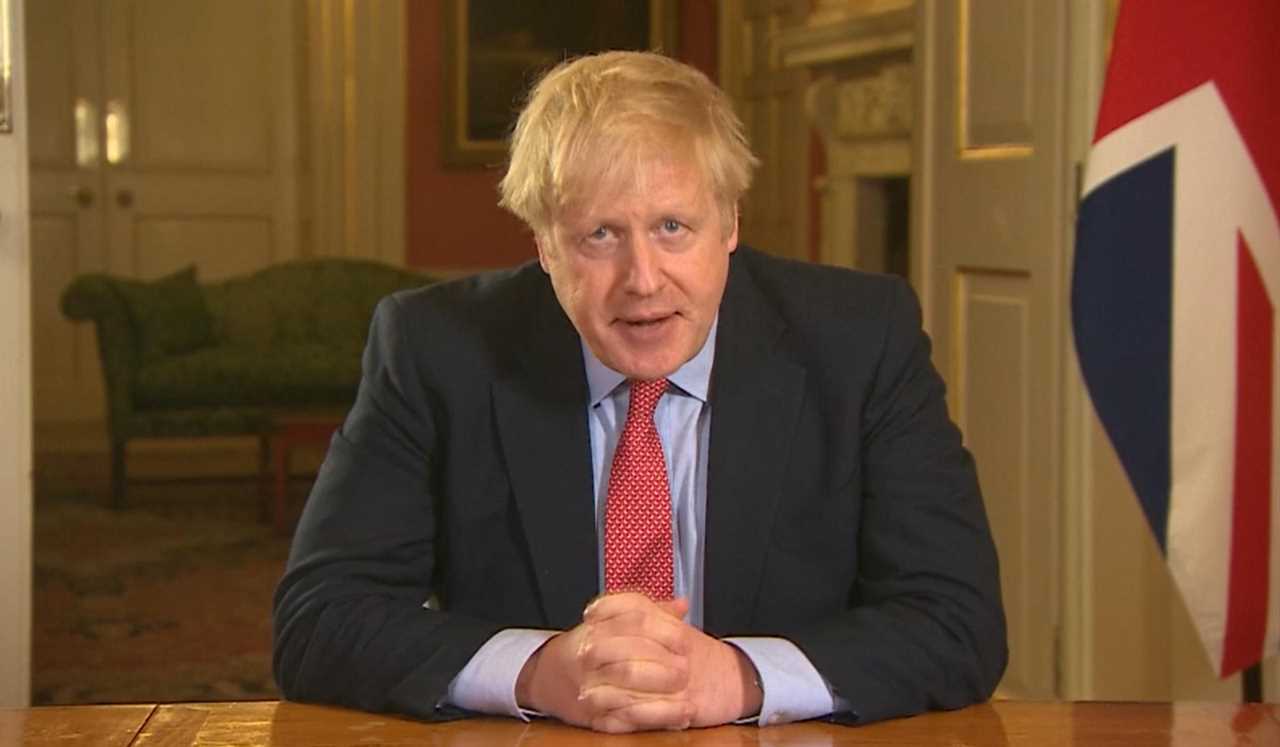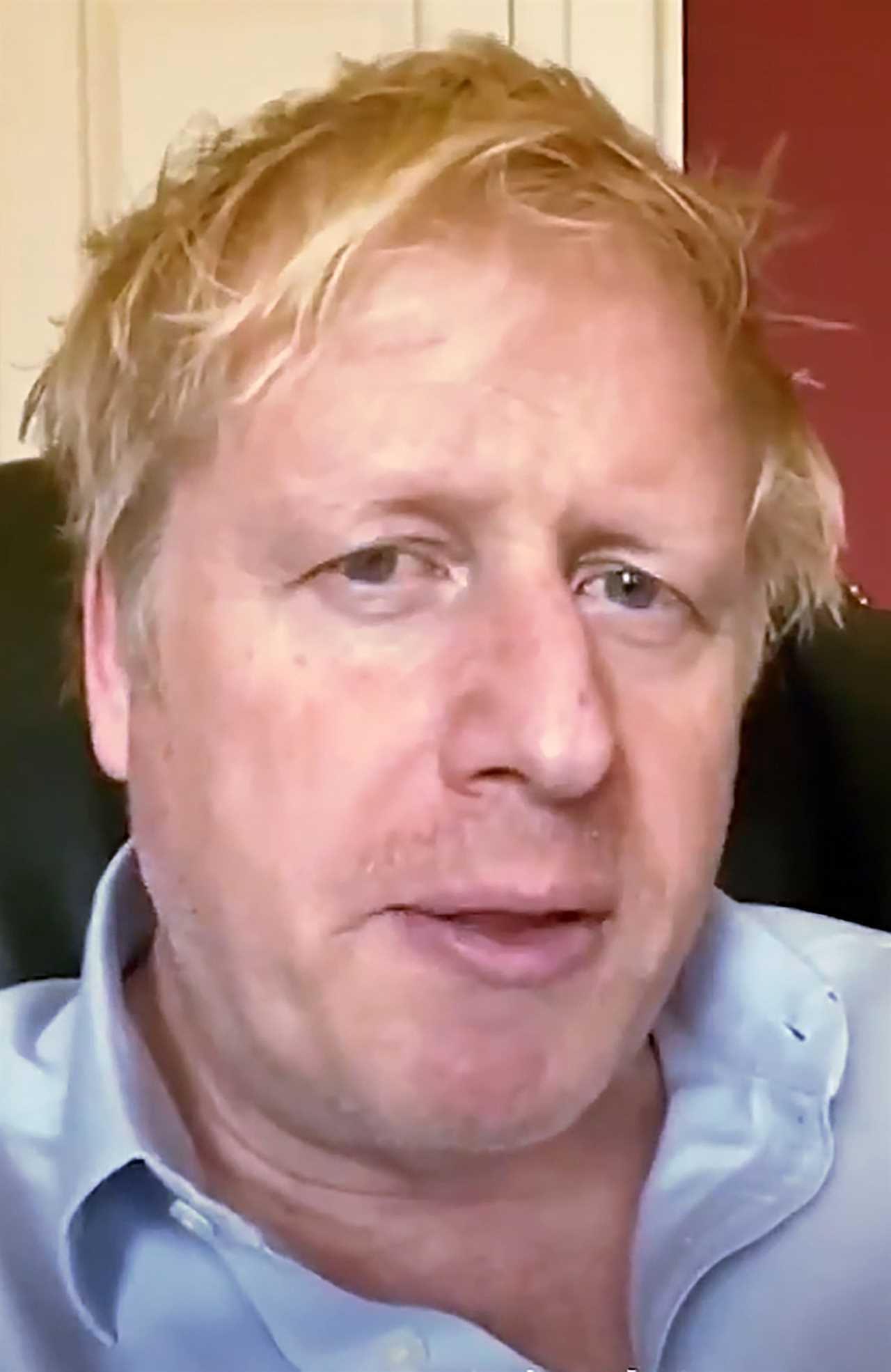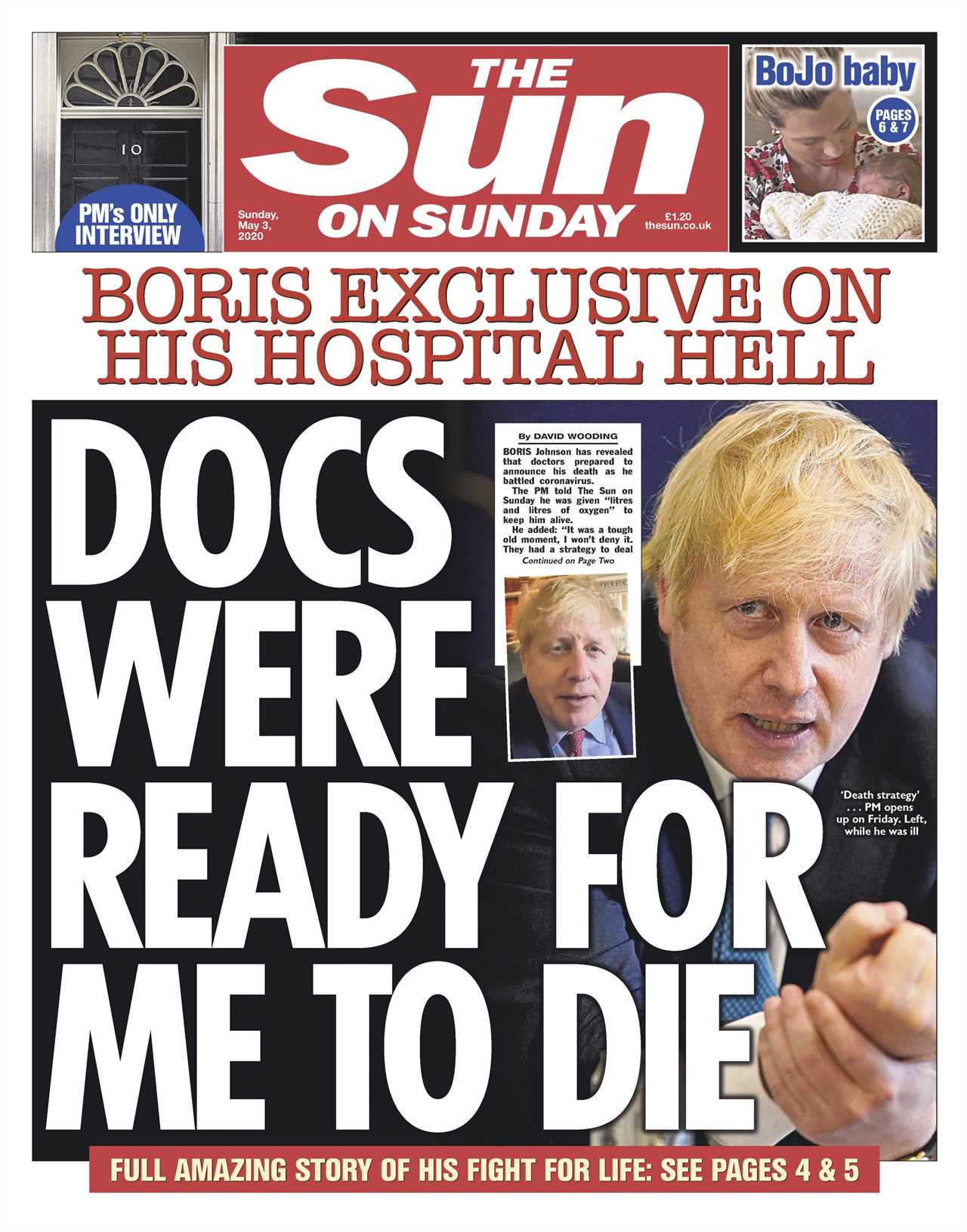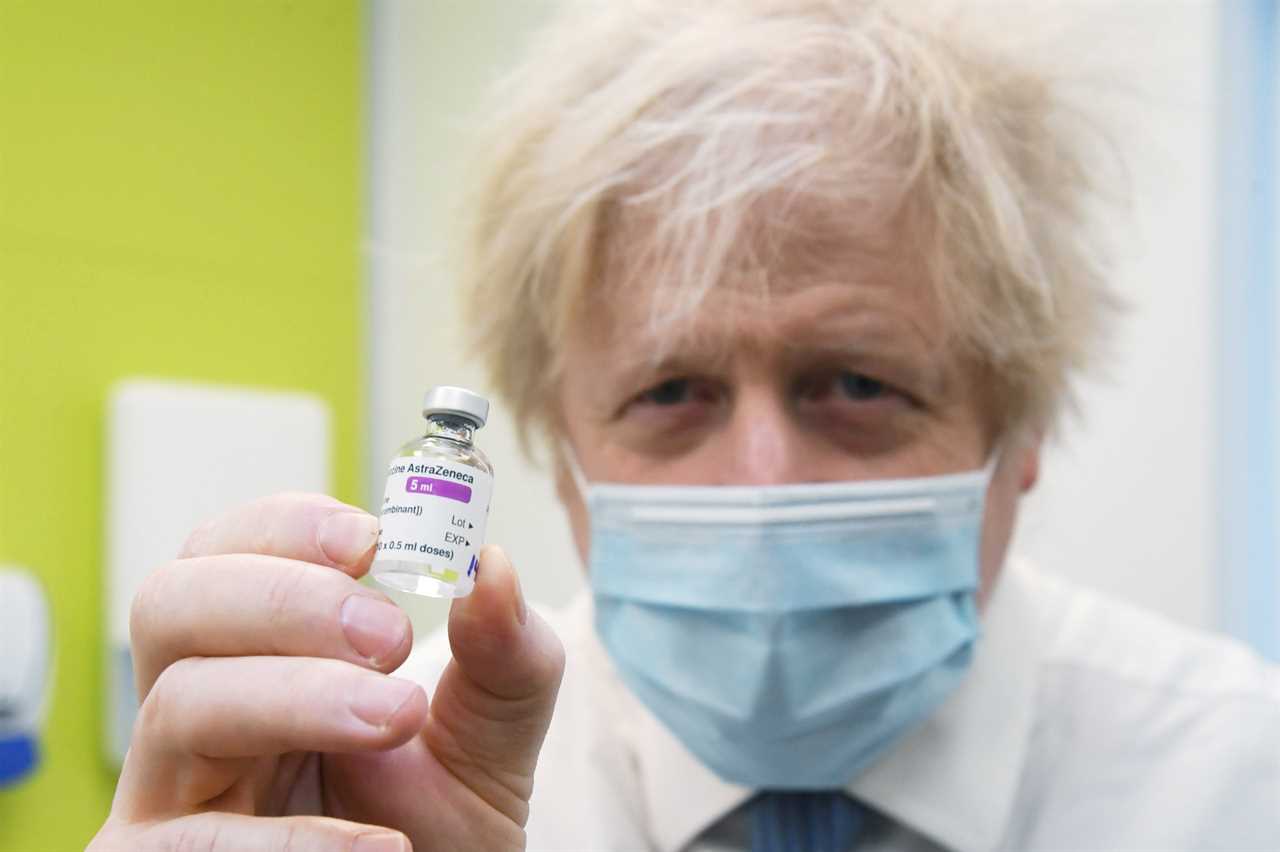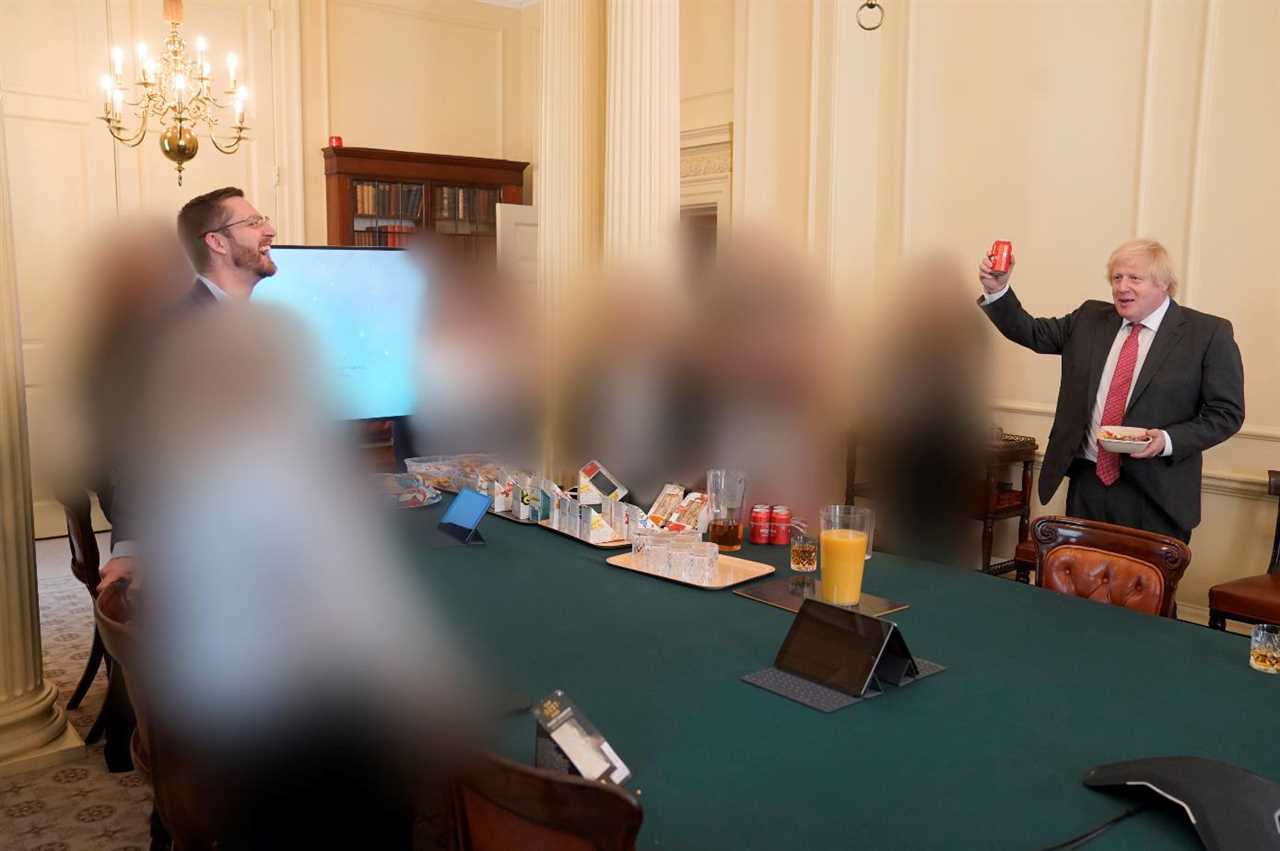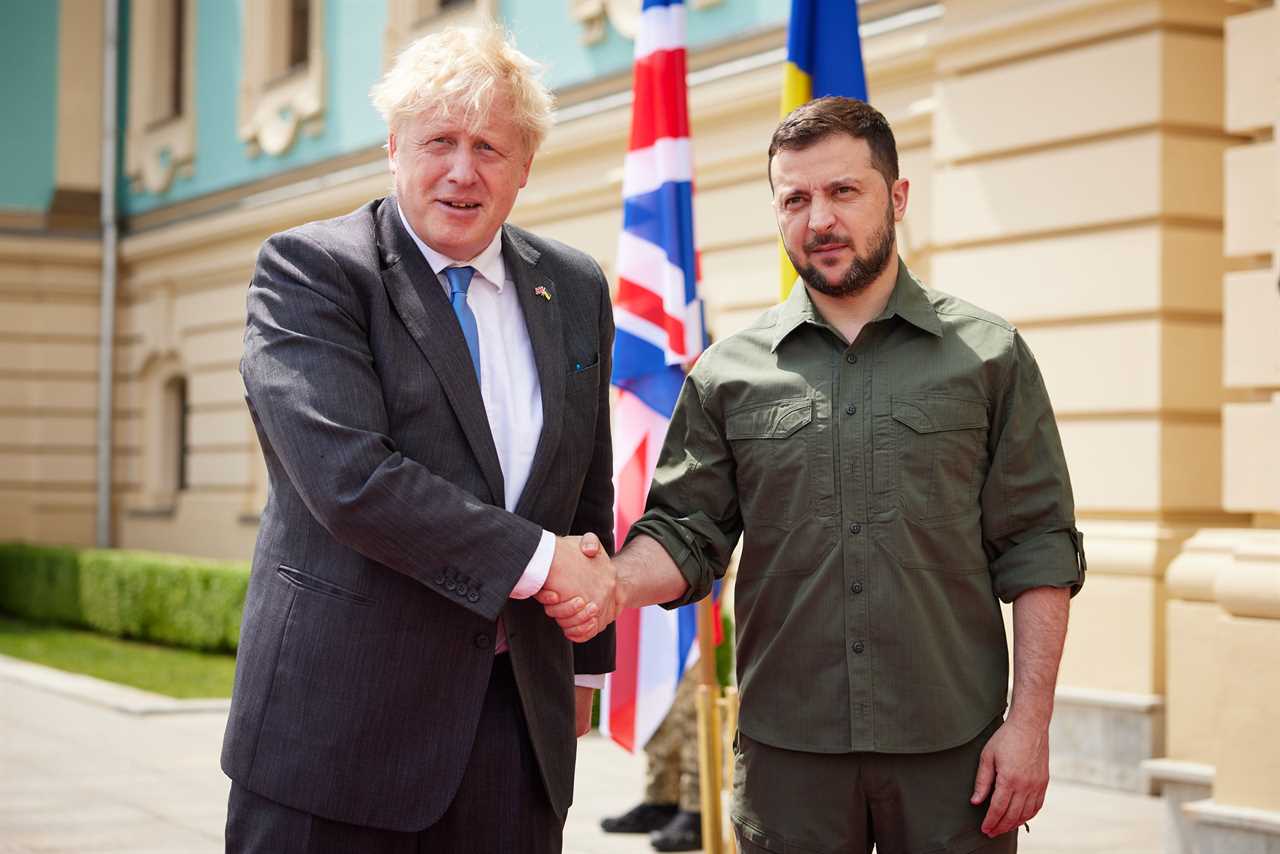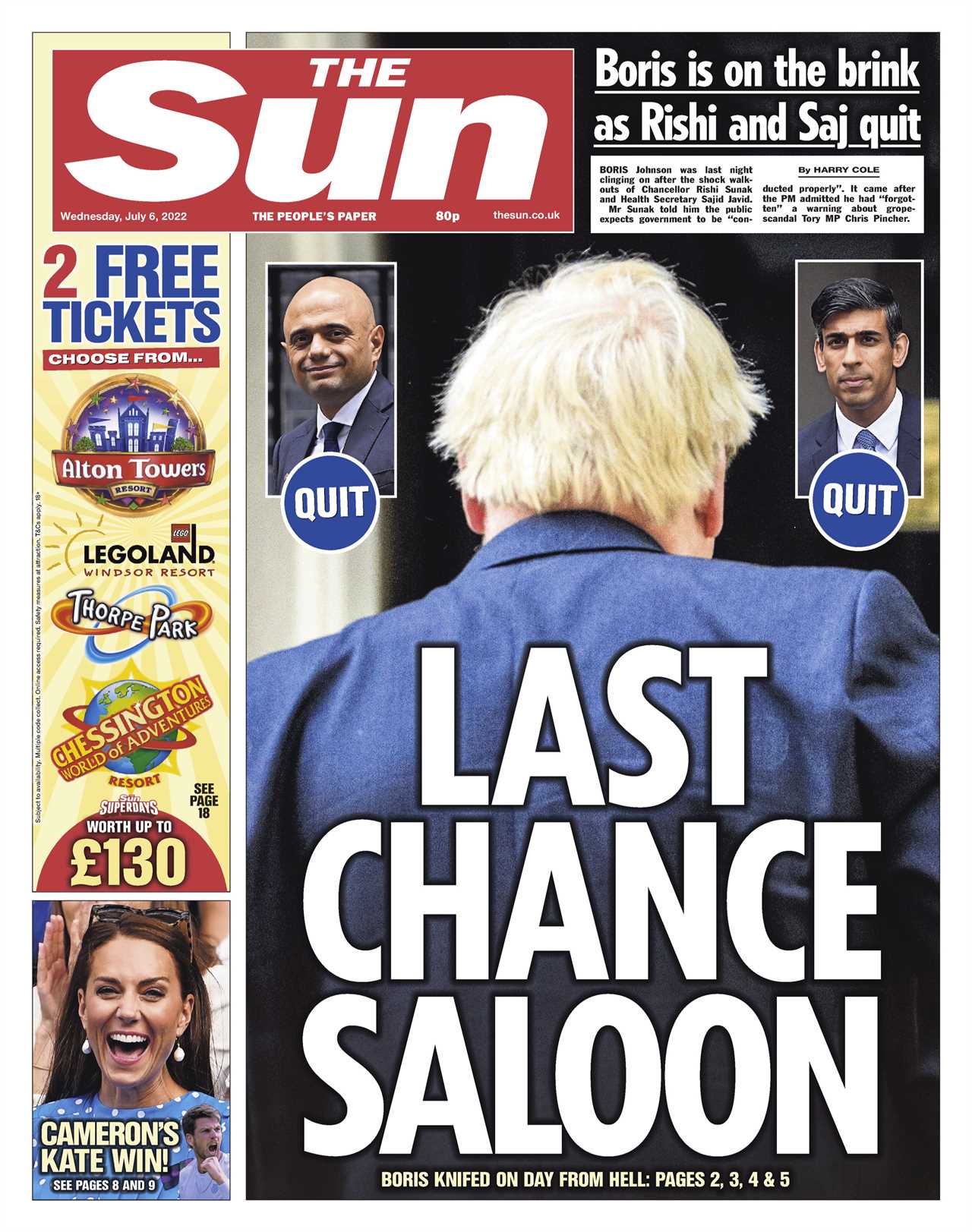HAS the greased piglet now finally seen his grip on power slip away?
The rump of his Cabinet has told him to go — and the men in grey suits are awaiting.
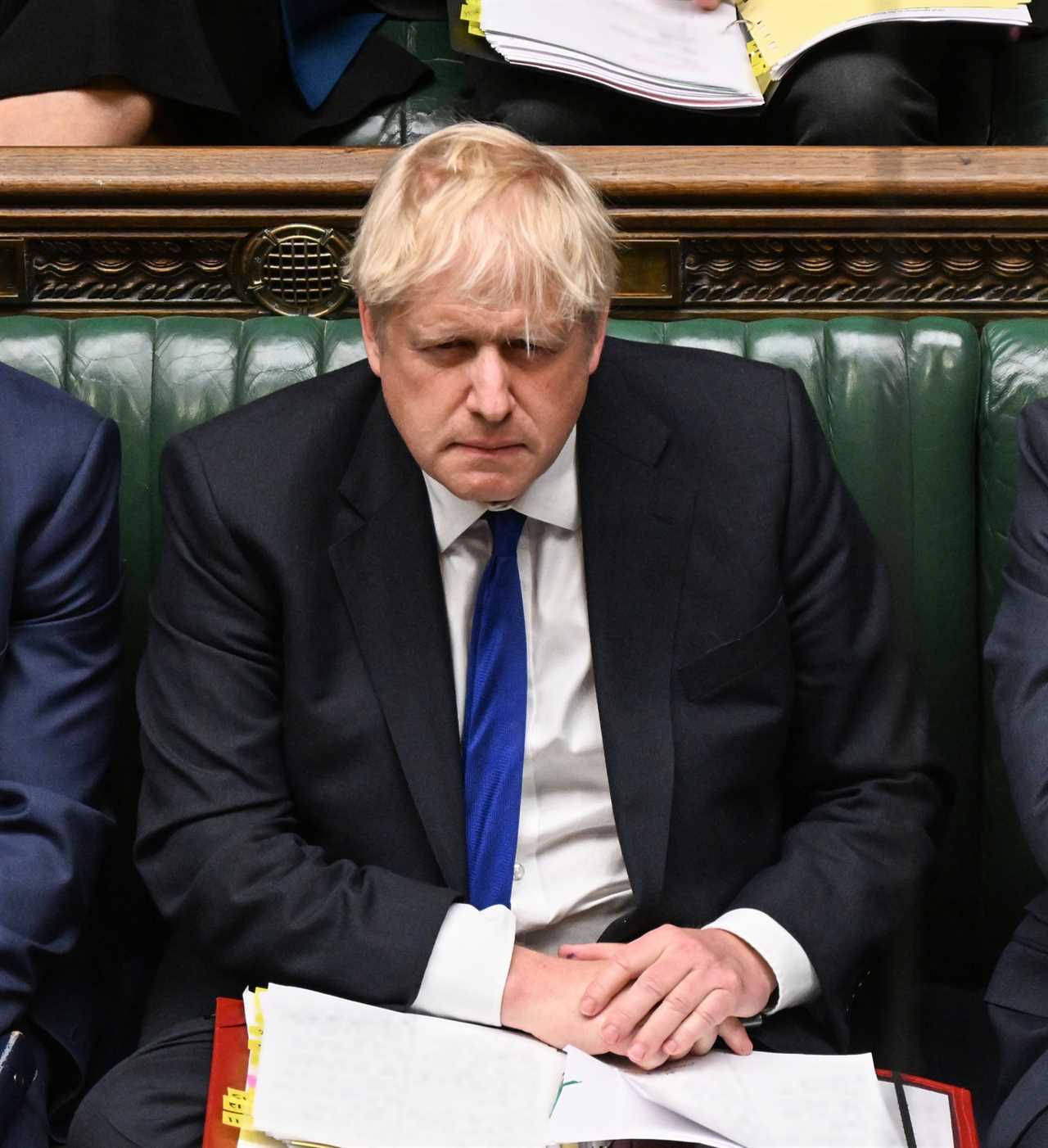
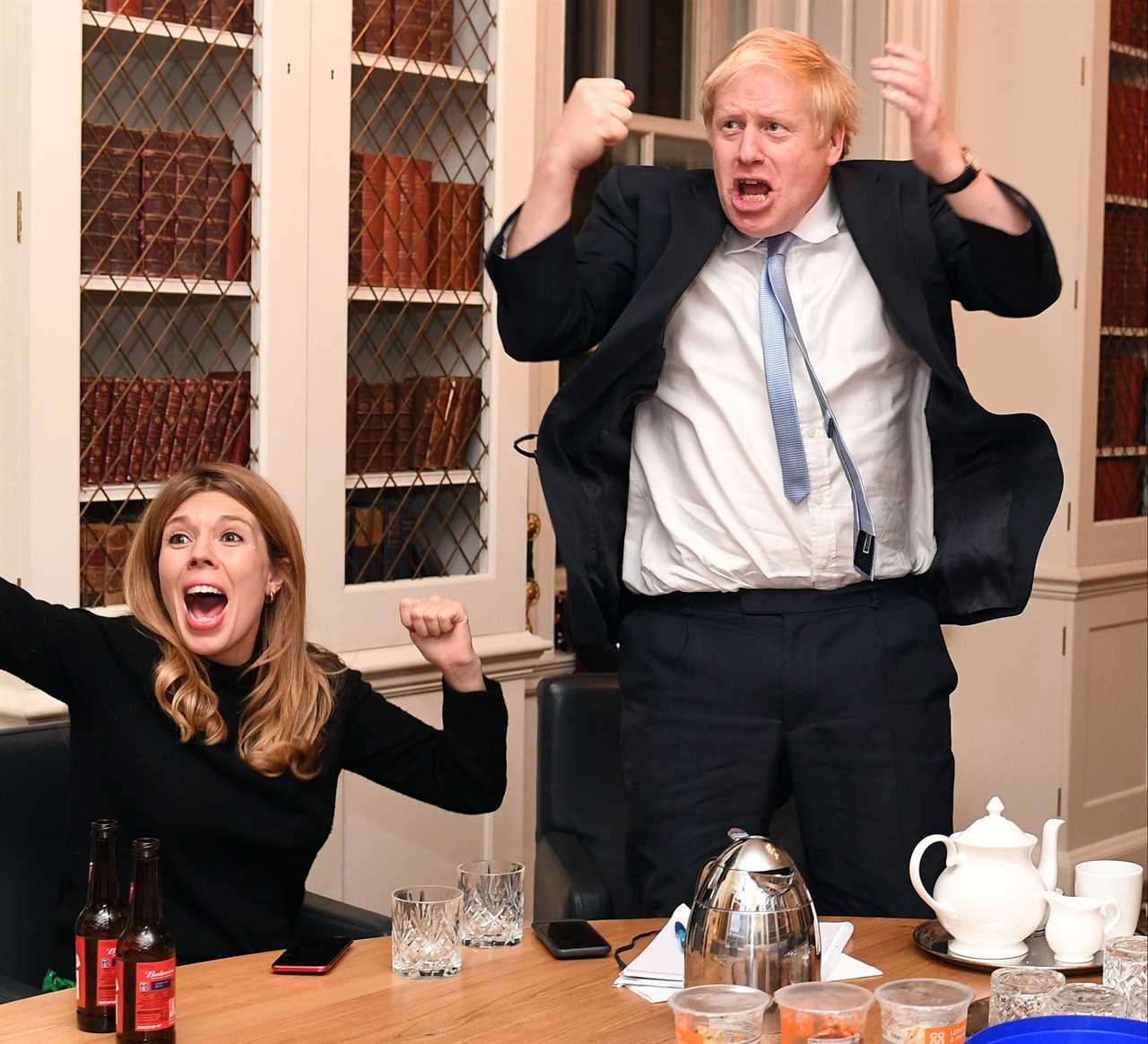
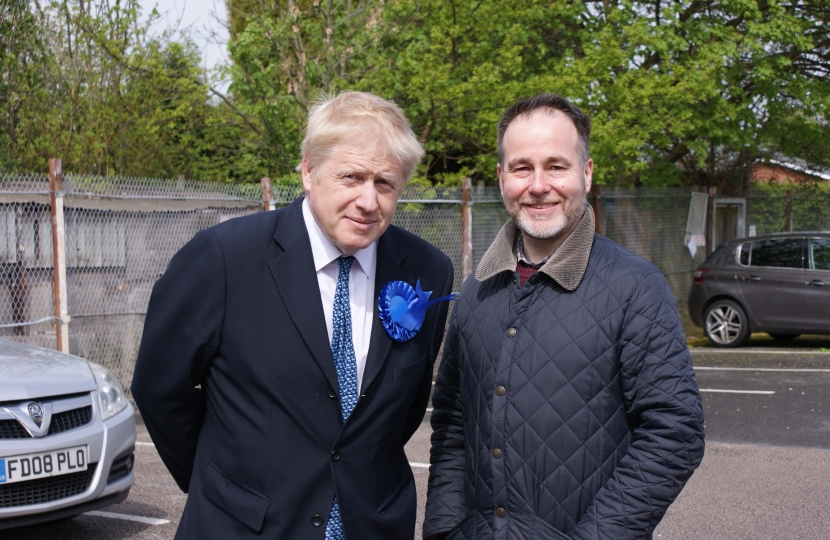
He is in No10 but all bar Boris Johnson’s most die-hard supporters agree his authority is gone.
His three years inside the famous old building have been the most tumultuous and chaotic in British political history — getting Brexit done, facing a once-in-a-century pandemic and the evil of the Putin regime and even cheating death.
He’d spoken of a third term and the desire to go on and on.
Typical of a politician who boasted as a child of wanting to be “world king”.
Instead, the Conservative who saw off the grim spectre of a looney left Jeremy Corbyn premiership is now likely to spend even less time in Downing Street than predecessor Theresa May.
Dealt the toughest of hands by Covid followed by a cost of living crisis, Mr Johnson will go down in history as a supreme campaigner who found the daily grind of governing beyond him.
Yet posterity will remember the one-time panel show performer and waspish newspaper columnist as the charismatic driving force behind the campaign to wrench the UK from the EU fold.
And many will long credit him for a “world-beating” vaccine roll-out before any other developed nation.
The former London mayor had fulfilled his long-held ambition of becoming PM after beating leadership rival Jeremy Hunt with 66 per cent of the party vote in a run-off.
In inimitable Mr Johnson fashion, he pledged to “energise the country” and began on July 29, 2019, with the nation trapped in an excruciating Brexit limbo.
Standing before the No10 door, he pledged Britain would be leaving the EU on October 31 “no ifs or buts”.
In characteristic fashion, he added: “The doubters, the doomsters, the gloomsters — they are going to get it wrong again.”
Another key pledge was the levelling up programme, in which Mr Johnson insisted he would answer “at last the plea of the forgotten people and the left-behind towns by physically and literally renewing the ties that bind us together”.
The early months of his premiership proved to be a brutal political war over Brexit.
Mr Johnson stuck by his word to drag the UK out of the EU and honour the referendum result.
To do so he would need to face down a raft of constitutional, legal and political barriers which were erected in his path.
With the October 31, 2019, deadline to leave Europe looming and with no deal yet agreed by MPs, Mr Johnson suspended Parliament for five weeks.
Critics said he was trying to stop MPs from scrutinising his Brexit plan.
Mr Johnson retorted that he simply wanted his government’s policies set out in a Queen’s Speech on October 14, which would require Parliament to be prorogued and a new session to begin.
The Supreme Court then ruled the move was unlawful.
CALLS TO RESIGN
Mr Johnson faced calls to resign but brazenly said he “profoundly disagreed” with the ruling but would “respect” it.
Mr Johnson’s Brexit plans were further hampered by what he termed the Surrender Act — a parliamentary bill which meant the PM would have to extend the October 31 EU leaving date, aiming to prevent a No Deal Brexit.
On October 17 he secured a free trade Brexit withdrawal deal agreed with Europe, which dumbfounded his critics who had believed it was impossible.
But Britain was locked in a so-called Zombie Parliament — with Mr Johnson not having enough MPs to pass the deal in a Commons stuffed full of Remainers.
Under the Fixed-term Parliaments Act, a two-thirds majority was required to hold an election.
The Brexit deadline was extended and Mr Johnson asked Labour leader Jeremy Corbyn to back a General Election to break the deadlock. Corbyn declined.
With a No Deal Brexit off the table, Corbyn finally agreed to an election which was held on December 12, 2019.
Campaigning with gusto — with Mr Johnson memorably crashing through a wall with Get Brexit Done written on it while riding a JCB — he delivered a crushing 80-seat landslide majority.
In Tony Blair’s former Sedgefield constituency on his first official visit following his triumph, he pledged to level up the country and lead as the “peoples’ Government”.
Mr Johnson looked forward to shaping a nation to his vision, seemingly destined to match Margaret Thatcher’s 11 years as PM.
On January 31, 2020, Britain finally left the EU to scenes of joy from many.
Mr Johnson rode a tidal wave of popularity with the Tories polling at 49 per cent to Labour’s 30.
DIVORCE SETTLEMENT
On February 18 a court was told Mr Johnson and his estranged wife Marina Wheeler had agreed a divorce settlement.
Around two weeks later, the PM and his partner Carrie Symonds announced she was pregnant and the couple had got engaged.
Yet, his new tenure in Downing Street was already being buffeted as Covid 19 began spreading across the globe from China.
On March 23, he plunged Britain into lockdown to stem the pandemic.
And then the virus caught up with the overweight PM.
On April 7, 2020, he was moved into intensive care ten days after testing positive with the disease.
Mr Johnson would later admit his life hung in the balance, saying there were “48 hours when things could have gone either way”.
His plight — and the energy he showed in recovery — earned him widespread sympathy and respect.
Yet the grim spectre of Covid still hung over the country, and he was forced, largely against his will, into a one-month November lockdown.
The country emerged into a system of regional Covid ‘tiers’.
Mr Johnson was adamant he didn’t want to plunge the country into another national lockdown.
But on December 21, 2020, he was forced to cancel Christmas as the pandemic raged once more and threatened to overwhelm the NHS.
LOCKDOWN
Kids were taught from home in another national lockdown which was to last three months.
In the meantime, one of Mr Johnson’s greatest legacies, the vaccine roll-out, was bearing fruit.
On December 8, 2020, 90-year-old Margaret Keenan was given the Pfizer/BioNtech vaccine at Coventry’s University Hospital.
She was the first person in the world to receive the jab after UK health authorities gave it the green light.
Mr Johnson called it “a momentous step”.
It was the start of a “world beating” jabs roll-out, soon followed by the Oxford University-developed and UK government-funded AstraZeneca vaccine.
Deaths began to fall with Mr Johnson’s administration taking due credit.
Yet, his administration would soon be smothered by the Partygate scandal.
A seemingly endless stream of stories detailed boozy shenanigans in No10 while the rest of the nation was obeying lockdown rules
Police eventually issued the PM with a £50 fine over his own birthday party in June 2020 — and Rishi Sunak and Carrie Johnson also received fixed penalty notices.
Senior civil servant Sue Gray was dispatched to investigate and looked into 15 events on 12 dates between May 2020 and April 2021.
She concluded that there had been “failures of leadership”.
It severely wounded Mr Johnson. Yet, his handling of Russia’s invasion of Ukraine handed him a lifeline.
UKRAINE LIFELINE
British weapons and aid proved vital in holding off the Russians, and the PM was feted by Ukraine’s leader Volodymyr Zelensky.
It looked like the PM would be secure until the end of the year.
And then the Chris Pincher affair exploded. The Deputy Chief Whip was accused by two men of drunkenly groping them.
Mr Johnson declined to suspend him from the party saying the matter was closed.
No 10 – and a series of government ministers – initially denied that PM was aware of specific complaints against Mr Pincher before appointing him to the role in the whip’s office.
That turned out to be false. And a large swathe of his party decided it had had enough.
The PM had last night not still not been slid all the way out of the door.
But most at Westminster think it’s now just a matter of time.

